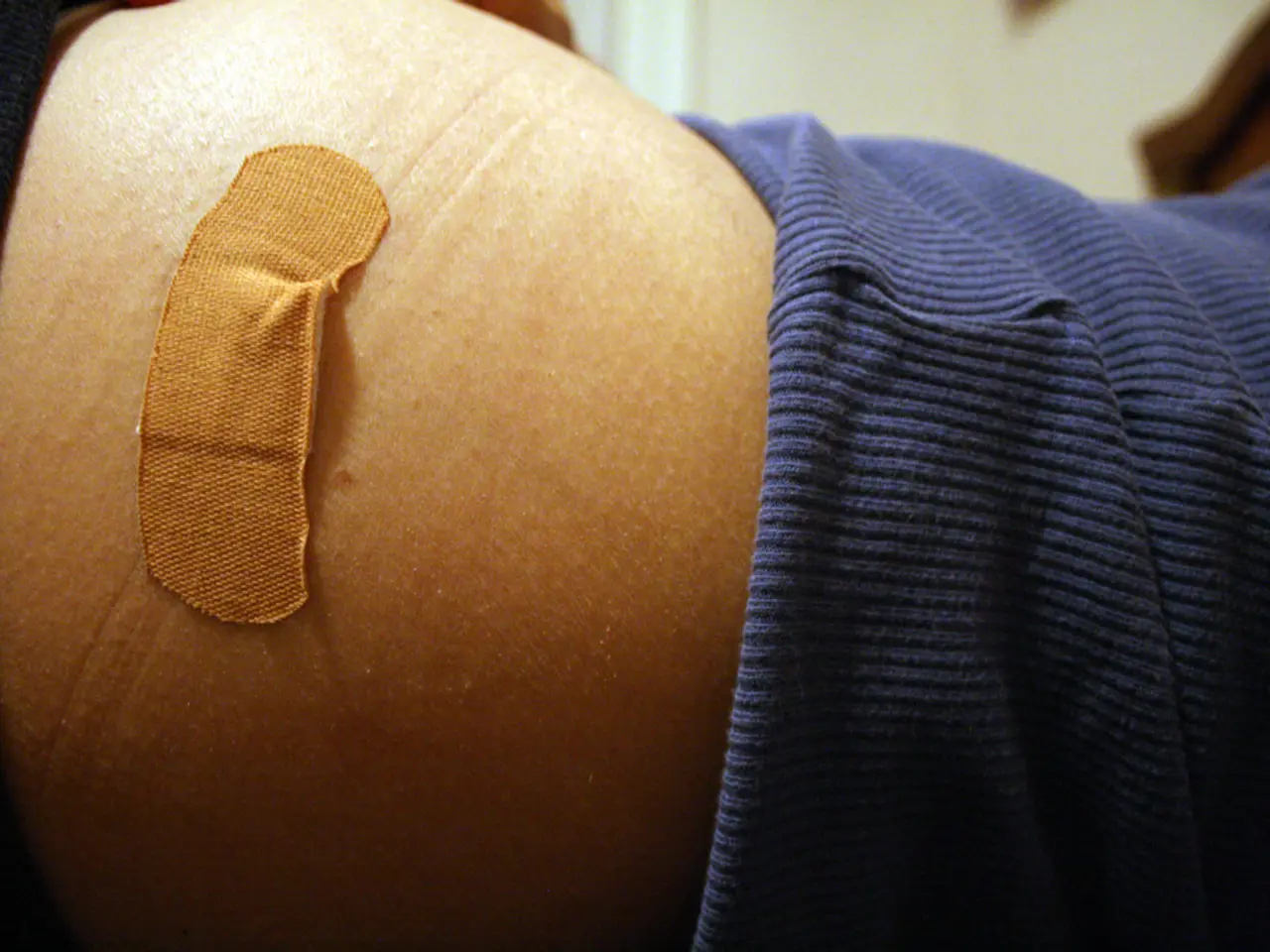Breast Augmentation Contemplation: Understanding the Implications of Capsular Contracture
In the realm of breast augmentation surgery, a potential complication known as Capsular Contracture can arise. This condition occurs when internal scar tissue tightens around the breast implant, causing various symptoms such as the breast feeling hard, stiff, and uncomfortable.
Dr. Rajat Gupta, a board-certified plastic surgeon with 15 years of experience in India, is a practitioner involved in such procedures. He offers the best remedies and cosmetic procedures outfitted with the latest technology, ensuring the aesthetic needs of his patients are met with the utmost care.
Capsular Contracture can develop due to bacterial infection or biofilm formation. To mitigate this risk, a series of precautions are taken during surgery. Surgical gloves are changed just before the actual placement of implants, and a plastic barrier is placed to cover the skin to prevent the implant from touching the skin. Additionally, a plastic patch or nipple shield is used during the surgery to cover the surgical field from the bacteria source, as nipple ducts are known for harbouring bacteria.
To lower the chances of Capsular Contracture, several strategies are employed. The choice of implant plays a significant role, with textured surface implants being favoured over smooth-walled ones due to their ability to disrupt scar capsule formation. Implant placement beneath the pectoral muscle (submuscular placement) rather than above it (subglandular) is also associated with a lower risk.
Meticulous sterile techniques and steps during surgery, post-operative care, and possibly medication to reduce inflammation and scar formation are other common strategies. Wearing a supportive surgical bra continuously for about two weeks, performing gentle breast massage exercises starting around 5 days post-surgery, and avoiding strenuous activity during the initial healing period are all part of the post-operative care.
Despite these measures, Capsular Contracture may still occur, and revision surgery can be necessary in some cases. The Baker Grading System is used to define the grades of capsular contracture, with Grade I resulting in soft breasts with natural looks, Grade II in slightly firm breasts that appear normal, and Grade III in firm breasts that look abnormal. Grade IV results in hard, painful breasts that look unusual.
It's important to note that affordable breast implants may increase the risk of Capsular Contracture. Therefore, choosing a reputable surgeon and high-quality implants is crucial.
To book an appointment with Dr. Rajat Gupta, call 91-9251711711 or email contact@our website. For more information, visit our website.
- Dr. Rajat Gupta, a seasoned plastic surgeon, utilizes the latest cosmetic procedures and technology to address aesthetic needs while taking necessary precautions to minimize the risk of Capsular Contracture during breast augmentation surgery.
- Surgical measures such as using textured surface implants, submuscular implant placement, and meticulous sterile techniques during surgery can reduce the risk of Capsular Contracture, a condition that occurs when internal scar tissue tightens around the breast implant.
- A proper post-operative care routine is also essential to lower the chances of Capsular Contracture, including wearing a supportive surgical bra, performing gentle breast massage exercises, and avoiding strenuous activity during the initial healing period.
- Despite taking precautions, Capsular Contracture can still arise, requiring revision surgery in some cases; the Baker Grading System is used to define the severity of capsular contracture, with higher grades resulting in firmer, more abnormal breasts that might need additional medical-condition interventions for health-and-wellness and women's health concerns.




